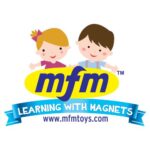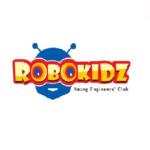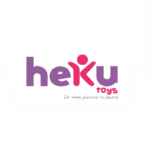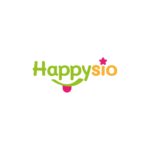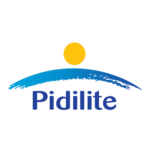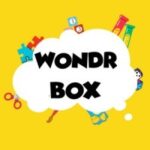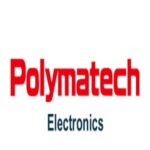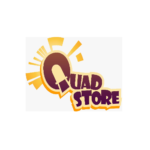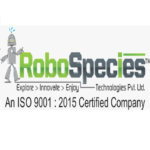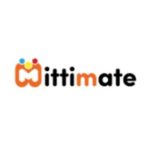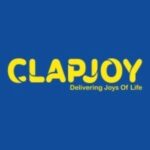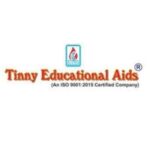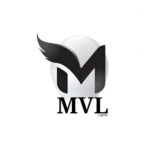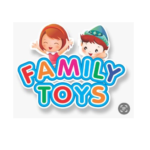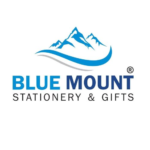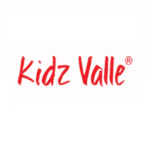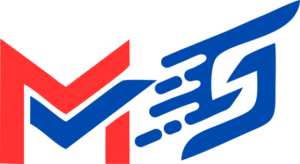IS 9873 BIS Certification for toys | Documents | Govt. Fee | Procedure

What is BIS Certification for toys & why is it important ?
BIS certification is a third-party guarantee of product quality, safety, and reliability. BIS stands for Bureau of Indian Standards is a statutory body of the Ministry of Consumer Affairs, Food and Public Distribution, Government of India. It was established in 2016 with the aim of harmonizing developments in product standardization, labeling and quality certification in the Indian market to ensure consumer safety. BIS certification is applicable to both foreign and Indian manufacturers.
Toys are intended for use by children under 14 years of age. Therefore, it is important that toys do not pose any risk to the child’s health and safety. To protect the interest and welfare of children, the toys Quality Control order (QCO), 2020, issued by the Government of India, require toy manufacturers and importers who wish to sell toys in the Indian market to obtain BIS certification for toys from January 1, 2021 stipulates that it is mandatory. BIS certification ensures that the toys meet the safety and quality standards set by the Bureau of Indian Standards. This ensures that the toys are made of the right materials, durable and meets the desired quality standards.
BIS certification for toys on assembling unit:
Companies that import toy parts, assemble and sell toys under their own brand in India can apply BIS certification for toys as assembled units. Toy manufacturers use third-party machinery such as injection molding, blow molding, cutting, printing, etc. They can also apply BIS registration for toys in assembled units on the basis of job work agreement for machinery outsourcing is acceptable by the BIS Department.
Classification of toys for the purpose of BIS certification:
- Non-electric toys: These are common toys such as rattles, dolls, and puzzles that do not have functions that rely on electricity. Applicable BIS primary standard – IS 9873 (Part 1): 2019
- Electric toys: These are toys that have at least one function supported by electricity as mentioned in scope of IS 15644. Applicable BIS primary standard – IS 15644: 2006
Manufacturers while applying for a BIS certification for toys, may choose one of the above applicable primary standards based on the type of toy for which BIS certification is required. If certification is needed for more than one type of toy (i.e. non-electric and electric), separate applications shall be filled for each type. (However, samples shall be tested by BIS for conformity to the primary standard and the secondary standards which are applicable i.e. IS 9873 Part 1,2,3,4,7,9 and IS 15644).
Will BIS test each and every MODEL/SKU before granting BIS certification ?
Since there are many toy models made by most toy manufacturers. Manufacturers find it virtually difficult to test each and every model of toy to apply BIS certification for toys. BIS addresses this issue in its toy Safety Product manual available on BIS website. To download product manual CLICK HERE
A product manual is a guidance document that contains product-specific guidelines for BIS certification. It contains “grouping guidelines” that enable the granting of BIS certification for group of toy models based on testing of several representative models. This guideline has been prepared based on Indian Standard IS 9873 (Part 8): 2019 that classify toys into 7 categories and 146 subcategories.
The appropriate starting age depends on the specific purpose and function of the toy. For authentication purposes, all toy models of similar design made of the same material covered by a single sub-category is considered a series. Sample of any one model in each series must be drawn and tested to cover all models in that particular series. Please refer to the product manual for details.
List of documents required to apply for BIS on toys:
- Company incorporation certificate.
- GST and MSME certificate.
- List of the machinery (in case of assembling unit, job work agreement for outsource of machinery is required).
- Google business registration.
- Brand name or trademark registration.
- Manufacturing Flow Chart.
- Plant Layout.
- List of the raw-materials (in case of assembling unit, toys’ parts are generally considered as raw-materials)
- Address proof of the company like rent agreement or lease deed or ownership deed etc.
- Images of the products.
- Appointment letter, ID proof and qualification proof of the Quality control person.
- Test report of the products from BIS approved labs.
- List of the testing equipment (exempted for micro unit as per MSME).
Concession in Govt. Fee for new startups and micro units:
Concession in the minimum marking fee (Govt. Fee) for new startups or micro units turnover less than 5 crore.
Govt. Fee to apply BIS certification for toys:
For Non-Electric toys
Annual fee: 1,000/- INR
BIS inspection fee: 7,000/- INR
BIS testing fee: 9,000/- INR (approx.)
Please note: In case of Non-Electric toys, Minimum marking fee for Large scale enterprise is 98,000/-, Medium scale enterprise is 79,000/-, and Small scale enterprise is 79,000/-. No discount in the minimum marking fee (govt. fee) for small scale, medium scale and large scale enterprises.For Electric toys
Annual fee: 1,000/- INR
BIS inspection fee: 7,000/- INR
BIS testing fee: 18,000/- INR (approx.)
Please note: In case of Electric toys, Minimum marking fee for Large scale enterprise is 1,46,000/-, Medium scale enterprise is 1,17,000/-, and Small scale enterprise is 88,000/-. No discount in the minimum marking fee (govt. fee) for small scale, medium scale and large scale enterprises.Validity of the BIS certificate for toys:
365 days from the date of grant of the BIS License.
Step by step procedure to apply BIS certification for toys:
- Go to manak online: www.manakonline.in/MANAK/eBISLogin
- Create user id, password and generate test request for pre-testing of the toys
- Toys are tested by a third party laboratory approved by BIS.
- Filing of the application.
- Payment of the government fee.
- Scrutiny of the application by the BIS officers.
- Factory inspection done by the BIS officer.
- During factory inspection, samples will be sealed by the BIS officer.
- Dispatch of the samples to the BIS Central laboratory and submit the POD.
- Grant of the BIS License.
Installation of in-house testing lab for the purpose of BIS registration for toys:
Since the toy association has stated that it is difficult for many toy manufacturers, especially the MSME sector, to set up their own testing facilities, sub-contracting has been permitted in the SIT mentioned in the product manual for all tests except the tests specified IS 9873(Part 1): 2019 and 3 tests mentioned in IS 15644:2006.
For micro units or startups: Installation of in-house testing lab is exempted for micro units or new startups for the period of 36 months for the toy manufacturers and 12 months for the assembling units from the date of grant of the BIS License for toys.
For small, medium & large enterprises: Installation of in-house testing lab is mandatory as per the tests specified in IS 9873 (Part 1):2019 – Safety Aspects Related to Mechanical and Physical Properties and 3 of the13 tests specified in IS 15644:2006 – Safety of Electric Toys.
List of the testing equipment required to apply BIS certification for toys for small, medium and large scale enterprises:
- Sharp-point tester
- Sharp-edge tester
- Small parts cyclinder
- Drop tester
- Test template A,B and C
- Push-pull gauge
- Seam clamp
- Thickness gauge meter
- Torque measuring meter
Expected BIS License for toys delivery time period:
30 to 45 days
Post-compliance of the BIS certification for toys after grant of the BIS License:
- Monthly update of the consignee details on the BIS Portal.
- Monthly update of the production details on the BIS Portal.
- Proper maintain of the test records as per SIT scheme of the BIS.
- Market samples will be collected by the BIS department for market sample testing.
- Intimation to the BIS department for inclusion of new models or categories.
- Factory surveillance will be conducted by the BIS officer after grant of the license.
- Permission from the BIS department before change of the place of the business.
- Timely renewal of the BIS License.
- Intimation to the BIS department for change in machinery or raw-material or plant layout or process flow chart etc.
Why choose us ?
- Our team of experts has accumulated vast knowledge about the process to get BIS certification for toys.
- We provide assistance to clients in preparing applications, documentation, and development of the products.
- We ensure efficient communication between the applicant & BIS Department and answer to the queries raised by the BIS officer during scrutiny of the application on behalf of the clients.
- We provide regular updates to our clients about revisions done by the BIS Department.
- We also provide training to our clients after grant of the BIS certification for toys about how to manage post compliance of the BIS License.
- Consulted 100+ Domestic toys manufacturers BIS Certification across the nation.
Conclusion:
Finally, toy importers and manufacturers are required to obtain a BIS certificate/license to use the ISI standard mark on their toys. Toys without the ISI mark cannot be sold domestically.
We at Max Solution Consulting Services serve the industry as a one-stop-solution for regulatory compliance of all products. With our extensive knowledge and experience, we help importers and manufacturers meet all requirements and obtain BIS licenses so that they can easily sell their products in the Indian market.
Our Partners
We believe in building a strong customer network and contributing to the ecosystem for mutual benefit. Some of our valued clients include:
